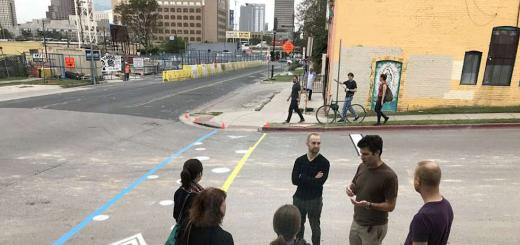You can study for free in the UK only by receiving a scholarship or grant. The largest scholarship program- Chevening. Russia is included in the list of countries whose citizens can apply for assistance from this fund. It is noteworthy that a person who already has a higher education and professional experience can become a scholarship holder. For our compatriots, the requirements are as follows: completed higher education, Russian citizenship and permanent residence on the territory of the Russian Federation, two years of work in the chosen specialty, planned labor activity in Russia upon graduation from the UK, a high level of English proficiency. For training, you can choose any specialty: politics and international relationships, science and space, economics, business and innovation, law and public administration, architecture, ecology, energy, journalism. The amount of the scholarship is 24 thousand pounds - 12 thousand for education (if it costs more, the student pays the rest) and 12 for accommodation and meals.
Scholarships can be obtained not only for studying in popular areas (political science, management, finance, and others), but also for more highly specialized ones, for example, in engineering or creative specialties. Moreover, you can enter universities and study on scholarships immediately after school, in some - even from the age of 16.
By the way, about the school. Britain also has its own USE, and students actively prepare for it before entering a university. Foreign applicants are no exception. Moreover, due to the difference in education systems, a student from Russia, the CIS and other countries cannot enter a university without passing the British USE - the A-level exam. It is aimed at preparing an applicant for studying at a university in the chosen direction and, of course, for foreigners - an in-depth study of English. Training program: three to four subjects required for admission to a particular specialty. Not only for admission, but also in order to be able to apply for a scholarship, it is simply necessary to successfully pass the A-level. So, many universities and foundations set a certain grade, an exam score, as a selection criterion for future scholarship holders. For example, for admission to an engineering specialty, the exam grade must be AAB (mathematics, physics and English) - where A is "excellent", B is "good". Those. in two of the three subjects you need to get "excellent".
A-level must be taken not only by graduate students, but also by adults who want to enter a British university. By the way, in order to prepare for it and complete the training program, it is not necessary to go to the UK - in Russia there are language centers and schools accredited for A-level education. You can also study online - now there are many resources dedicated to this.
There is also the International Baccalaureate, a program created to develop student mobility. Roughly speaking, undergraduate intensive for foreigners. There are schools in which classes under this program are held in many countries, including Russia. To enter a UK university, a prospective student is required to complete a two-year course (Diploma program), after which six exams are taken and one essay is written. The maximum score for each of them is seven points. To enter universities, you need to score a certain number of points - each educational institution can set its own minimum.
Most often, the results of the International Baccalaureate require applicants to master's programs. At the same time, it is not at all necessary that IB will replace A-level - universities can only accept the results of a single exam.
Sometimes it may be necessary to pass one of the international standardized tests, especially for technical specialties.
But nevertheless, the criterion remains indispensable, integral and always relevant - knowledge of English at a high level and the presence of an international certificate (CAE, ILTES). The passing score for these exams can be from 5.5 to 8, depending on the university and direction.
In general, studying in the UK for free is real, but preparing for admission and receiving a scholarship takes longer and more carefully than studying at a university in your native country.
Entering a university in England is not only prestigious, but also very promising. Even foreigners with incomplete secondary education can start preparing for studies at universities in the country. To do this, it is enough to have good grades and speak English.
Many students are attracted to England, the British-style education is recognized as one of the best in the world, and studying in this country allows you not only to speak English like a native speaker, but also to get ideal preparation for employment.
Dreaming of getting an education in the UK? Below we will tell you about the order of admission to various degree programs of universities in England.
In the meantime, click on the picture below to download the free university brochures.
Studying in England after 8th, 9th, 10th or 11th grade
The program to which an international student can be enrolled in England depends on how many years he studied in his country.
Admission after 8th or 9th grade
Foreigners aged 14-15 can enroll in English schools for the GCSE program, which leads to a British certificate of incomplete secondary education General Certificate of Secondary Education.
For students who have completed 8th grade in their country, the program lasts 2 years, and for students with Russian incomplete secondary education (graduates of 9th grade) - 1 year.
During the training, students study both compulsory disciplines, such as English, mathematics and natural Sciences, and optional subjects that they choose on their own. In total, students study 9-11 subjects. At the end of the program, they take from 6 to 10 final exams.
Students of GCSE programs receive excellent academic and language preparation, which makes it possible to continue their studies in England.
International students in England also have access to intensive IGCSE programs, which are designed specifically for foreigners and involve an in-depth approach to the educational process.
Both programs in England are offered on the basis of traditional schools, boarding schools, international training centers and sixth form colleges designed specifically for such programs.
Admission after 10th grade
10th grade graduates Russian schools and graduates of the above GCSE/IGCSE programs can apply for the A-level program.
This program accepts students over the age of 16. It lasts 2 years and leads to a British-style certificate of complete secondary education.
The A-level program includes 45 subjects, of which each student chooses 3-6 disciplines to study. It is important that these subjects correspond to the future university specialization of the student.
The A-level academic program consists of two parts, each of which lasts 1 year. At the same time, the program involves 20-25 hours of classes per week. After the first year of study in England, students receive an As-level degree, after the second year - an A2-Level degree. After completing the program, students take exams for an A-level diploma.
Having an A-level diploma allows a student to apply to universities in England and many other countries.
Admission after 11th grade
Graduates of Russian schools who have received a certificate of complete secondary education do not have the right to submit admission documents directly to universities in England.
Instead, they are provided with options for enrollment, which include the passage of preparatory programs.
Firstly, students have access to one-year Foundation preparatory programs, which accept students from the age of 17 years. The program provides general academic and language preparation for university studies.
Secondly, a student can enroll in a classic 2-year or intensive one-year A-level program, which we wrote about above.
It is worth noting that not all British universities consider the Foundation diploma to be an analogue of the A-level diploma and accept it. It is recommended to enroll in the Foundation program only if it meets the admission requirements of the chosen educational institution England. In all other cases, it is worth studying at the A-level program.
Admission to the undergraduate universities in England
The education system in England involves a convenient centralized platform for submitting admission documents to universities - UCAS(Universities and Colleges Admissions Service).
To apply, the student must register on the UCAS website and select from 1 to 5 UK universities and programs for which he wants to apply. At the same time, applying for one program costs $14, and for several - $28. Thus, it is more profitable to apply for several courses than for one.
After registration, selection of universities and programs, the student must fill out a personal form on the website, indicating information about himself, his academic and work experience, if any.
The following must be attached to the completed form:
- a copy of the international passport
- certificate of complete secondary education
- Foundation diploma or A-level
- motivational essay
- two letters of recommendation
- IELTS or TOEFL certificate
Note that this list of concession documents is indicative only. More accurate information about required documents can be obtained on the website or from representatives of the selected educational institution.
Admission to the magistracy of universities in England
Depending on the chosen master's program and the university, admission documents must also be submitted through the UCAS system or directly to the university.
The second option is more common, since only a few universities in the country receive applications for admission to the master's program through a centralized system. From their complete list can be consulted.
The UK is home to English, cricket and the best universities in the world including Oxford, Cambridge and Durham. Thousands come here every year to study. foreign students who want to receive an unrivaled education and a unique professional experience.
In one of the previous articles “Studying in the UK”, we talked about the advantages of studying in this country, the requirements for applicants and the leading Universities. Today we will delve into the process of applying to universities in England.
Choosing a university, program and specialization
If you have definitely decided that you want to get higher education in the UK, start studying information about the universities, programs and specializations presented. Stop the choice on the most suitable for you. Please note that for admission to Bachelor's programs, all applicants from Russia and the countries of the former CIS must have not 11, but 12 years of education. To do this, school graduates can take 1 course at a university in their home country, complete high school in England, or complete a 1-year Foundation program at the university planned for admission.
Documentation
Each university in the UK has its own requirements for the list of documents, and they can differ significantly from each other. It is best to refer to the data of the official websites of Universities or clarify all points with STUDIES & CARERRS consultants, who always have up-to-date information.
As a rule, for admission to universities in the UK you need to provide:
- Certificate of passing the English language proficiency exam (IELTS), specify the number of points required for enrollment in advance
- Documents on education: for the Bachelor's degree - an extract with grades from the school certificate, translated into English and notarized; for Masters - Bachelor's Degree (if not yet received, then an extract with grades) or documents confirming the relevant work experience (depending on the program and the University)
- 2-3 letters of recommendation from the teachers of the school / institute or from the employer
- A motivational essay that reveals the reasons why the applicant chose a particular profession, and how studying at this university will help him achieve his professional and personal goals. Often, it is the essay that plays a decisive role in enrolling a student, so treat it responsibly. STUDIES&CAREERS consultants have extensive experience in preparing the right motivation letters and will help you get the coveted admission letter
- Copies of passport and other identity documents
For studying at the Master's programs in England, it is also required to provide a resume (CV), where the future student talks about his own achievements and merits. It is best to keep within the volume of the A4 page. Some programs require special testing, for example, GAMSA or BMAT for medical specialties, LNAT for law, GMAT for financial (when applying to the best universities in the country). Creative majors often require the submission of a portfolio and a TSA test during an interview.
Submission of documents
And yet, how to enter a UK university? Most of the country's higher education institutions accept documents for undergraduate programs through a special service for applicants - UCAS (Universities and Colleges Admissions Service). Admission to arts-related programs is through CUKAS (Conservatories UK Admissions Service). It is important to understand that not all Universities cooperate with these services. At the same time, documents for Master's and Doctoral programs will have to be submitted directly to the university. It is easy to get confused in such a variety, but STUDIES & CAREERS consultants come to the rescue, who will not only select the best course for you, but will also accompany you at all stages of enrollment. They know exactly what documents need to be prepared for a particular university and program, how best to do it and where to send it for consideration.
Document submission deadlines
The academic year in English Universities lasts from September to July, although in some educational institutions, for example, Istituto Marangoni, training starts in October. Documents for Bachelor's programs are accepted until January 15, for Master's programs until July. Of course, these are average dates, because Each university in the country has its own rules and deadlines. Specify all information from STUDIES&CAREERS specialists or on the official websites of universities. It is important to understand that for citizens of Russia and former countries The CIS provides for a special procedure for enrollment, unlike holders of EU citizenship, so documents for admission should be submitted in advance.
Get a response from the university
Studying in England will be possible if you have prepared the documents correctly and meet the requirements of the university. Please be patient when submitting your application. The answer may come in a week or 2 months.
STUDIES&CAREERS consultants will tell you more about how to enter the University of England and apply for a study visa. Write, call or come to the office. We are waiting for you!
Depending on the goal and personal qualities, the student can choose one of two programs high school. A-Level is a two-year university preparation course in the British high school program. The student chooses 3-4 subjects to study from 20-30 disciplines, taking into account the requirements of the university and the specialty that he plans to receive. In these subjects, high school students take final exams. The A-Level program includes 16 hours of preparation in academic subjects and 5-8 hours of classes in English language in Week. Students are also encouraged to complete research work“Extended Project”, which is issued in the form of an extended essay.
Another two-year high school program - IB (International Baccalaureate, International Baccalaureate) - was developed in Switzerland as a universal school course. The student must choose one subject from six groups, three of which the guys study at the advanced level (240 hours) and three at the standard level (150 hours). The program involves the mandatory writing of a detailed essay of at least 4000 words.
Item groups for selection:
An IB diploma allows a student to enter a university in the UK, USA, Canada and other countries without exams.
Many students dream of studying at such legendary British universities as the University of Oxford and the University of Cambridge, which annually become one of best universities world (The World University Rankings) and consistently top the national rankings. Admission to the leading universities in the UK requires the most thorough preparation. For Oxbridge applicants English schools special programs have been developed. Tutors assigned to them teach students how to write a motivation letter, prepare them for additional entrance exams and an interview that all students must pass.
An application for admission to Oxford or Cambridge is submitted earlier than to other universities - until mid-October, almost a year before the start of studies at the university. To enroll in any specialty, you must successfully pass the interview. General requirement for all applicants is the completion of the A-Level or IB program with high results and an excellent level of English proficiency.










